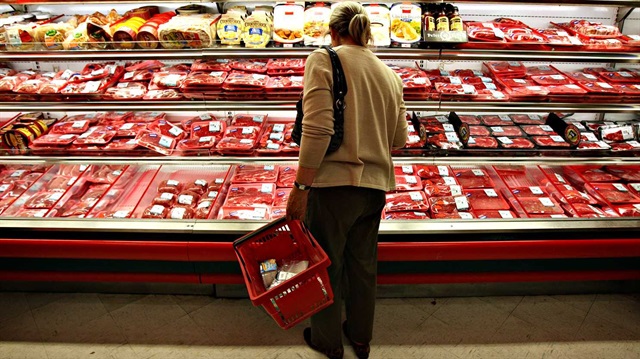Mexico’s Growing Dependence on U.S. Meat Imports
 Mexico has become increasingly dependent on meat imports from the United States to satisfy domestic consumption. Although the country has a strong livestock sector, national production is no longer sufficient to meet the needs of its population. This imbalance has deepened over time, reinforcing a structural reliance on U.S. meat—particularly in pork, chicken, and beef.
Mexico has become increasingly dependent on meat imports from the United States to satisfy domestic consumption. Although the country has a strong livestock sector, national production is no longer sufficient to meet the needs of its population. This imbalance has deepened over time, reinforcing a structural reliance on U.S. meat—particularly in pork, chicken, and beef.
Recent data shows how dominant U.S. meat has become in the Mexican market:
Table: Meat Imports from the U.S. to Mexico (2022–2024)
| Type of Meat | Volume from U.S. | Share of Mexico’s Total Imports | Year |
|---|---|---|---|
| Pork | 1,732,525 metric tons | 80.7% | 2024 |
| Chicken | 773,000 metric tons | 86% | 2022 |
| Turkey | 101,000 metric tons | 100% | 2022 |
| Beef | 76,034 metric tons | 60.9% | 2024 |
These figures show that for some meat categories—like turkey—Mexico is almost entirely dependent on U.S. supply. For pork and chicken, U.S. dominance is also overwhelming. And while beef has slightly more diversification, the United States still provides over 60% of Mexico’s imported beef.
What’s more alarming is the quality and composition of these imports. A large portion of the meat from the U.S. is frozen and industrially processed raw meat—such as mechanically separated chicken, hormone-treated beef, and pork injected with saline solutions or phosphates.
The meat often contains between 400 and 3,000 chemical additives, preservatives, or hormone residues, even before being turned into ultra-processed products like nuggets or patties which requires additional preservatives and other additives to extend the “shelf life”.
While legal under U.S. regulations, this may result in long-term health risks to Mexican consumers. Studies show that regular consumption of processed meats is linked to higher risks of colorectal, stomach, and breast cancers, largely due to nitrite-derived N-nitroso compounds forming carcinogens like nitrosamines.
It’s also associated with cardiovascular disease and hypertension, due to high sodium, saturated fats, and heme iron content. Additionally, there’s evidence for type 2 diabetes and metabolic syndrome, linked to obesity, endocrine disruption, and pancreatic stress.
Moreover, several additives used in meat processing have been shown to disrupt gut microbiota and promote intestinal inflammation, increasing the risk of digestive disorders like inflammatory bowel disease and possibly affecting neurological health. Taken together, these findings suggest that while U.S. imports may comply legally, they could pose significant chronic and digestive health threats to consumers over time.
To address this, the Mexican government introduced a federal program called Mejor Alimentación Local Organizada (MALO), designed to reduce dependency and strengthen local meat production. However, the program fell short. It failed to alter import volumes or meaningfully support national producers. The meat market remained concentrated in the hands of large importers and distributors.
This situation raises a central question:
Why does Mexico export so much meat if it already struggles to meet domestic demand?
The answer lies in the nature of the country’s agro-commercial model.
The Paradox of Importing While Exporting
Mexico is not only a major importer of U.S. meat—it is also a key exporter of high-quality meat and live cattle to the U.S. market.
In 2024 alone:
- 232,488 metric tons of beef were exported to the U.S.
- 1.25 million head of live cattle crossed the border
- Total export revenue exceeded $1.3 billion
Ironically, Mexico exports its highest-quality meat, while importing cheaper, processed, often chemically treated products to feed its own people. The best is shipped abroad; the rest is consumed at home.
This paradox is rooted in the structure of the Mexican economy. For many wholesalers, supermarket chains, and meat importers, it’s easier, cheaper, and faster to import meat from the U.S. than to invest in domestic production and distribution. Many of these companies are Mexican in name but operate within global supply menopoly chains—frequently in long-term partnerships with U.S. giants like:
- Tyson Foods
- Smithfield
- JBS
- Cargill
These corporations dominate the global meat industry, and their influence in Mexico is significant. Their pricing, logistics, and market control often discourage investment in small-scale, local production, leaving the country locked into a cycle of dependence.
Conclusion: A Fragile Food System
Mexico’s meat market exposes a structural contradiction: the country is both a supplier of premium livestock to wealthier nations and a dependent consumer of low-cost imports. The failure to build internal meat infrastructure, combined with global trade priorities, has created a system where Mexico consumes what it does not produce and exports what it does not eat.
If no structural change is implemented, this dependency will deepen. Health, nutrition, and food sovereignty will remain secondary to profit and convenience. Meanwhile, control over what Mexicans eat will continue to be decided in foreign boardrooms.
Este artículo está disponible en español
La creciente dependencia de México en la carne importada desde EE. UU.
More News about mexico meet imports
Mexico Imports of Meat & Edible Meat Offa





